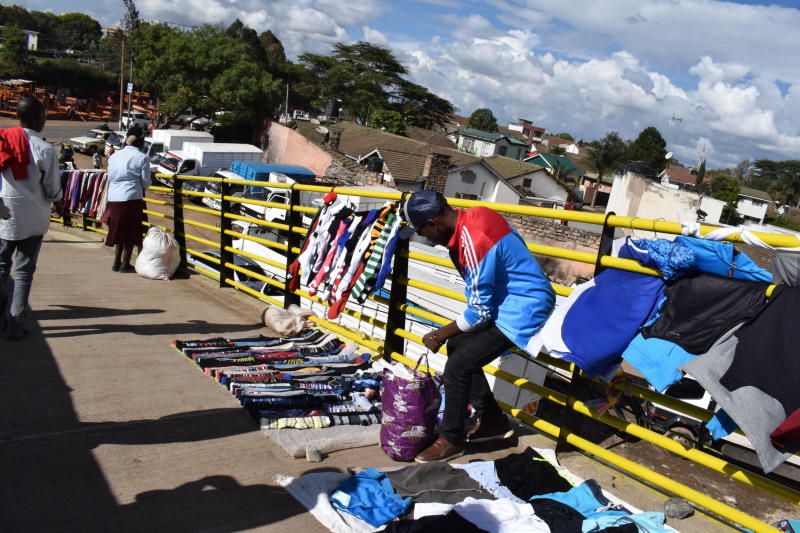×
The Standard e-Paper
Join Thousands Daily
 For a long time, Nairobi’s homeless or street families had taken over the few footbridges within the city and were making it hard for pedestrians to safely cross the road.
For a long time, Nairobi’s homeless or street families had taken over the few footbridges within the city and were making it hard for pedestrians to safely cross the road.
But things have changed. Traders and beggars are now calling the shots on the footbridges with the full knowledge of some Nairobi City County officers, the very people who should ensure that the infrastructure is used by people for whom they were installed.